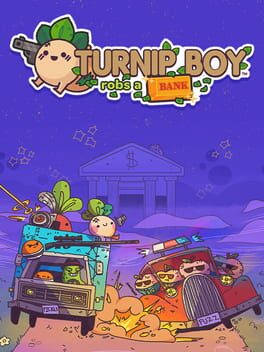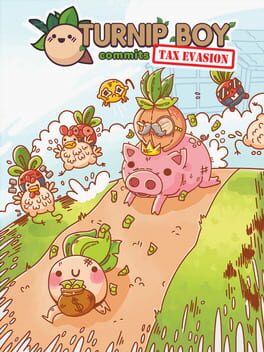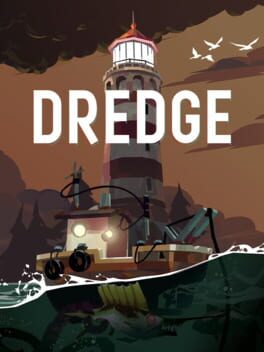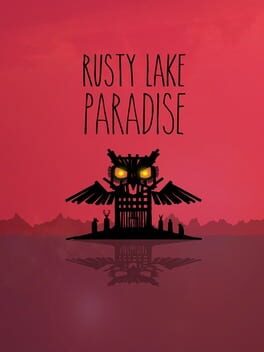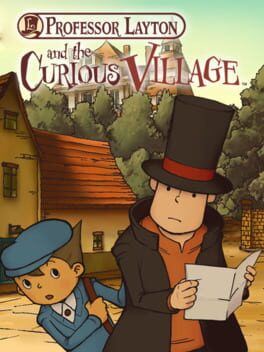soulpunk
2022
This review contains spoilers
i really wanted to like this game more than i did.
borrowing from staples of the survival horror genre, signalis combines resident evil's inventory management system with the atmosphere of silent hill (in particular i was reminded of silent hill 3, owing to both games portraying a lone female protagonist, as well as sharing some choices in enemy design). whether or not signalis actually innovates on these concepts is... another matter entirely.
we'll get to that. i have something much more pressing to talk about first.
which would be the story.
the story feels... vague. you'd miss most of it if you weren't stopping to read every note and document strewn about the game's vast levels, which is fine, but even with poring over every single piece, the plot feels half-baked. i arguably got the best ending of them all, (of which there are four, including a secret ending) and it still felt like there was so much missing.
you play as an android named elster, who is trying to find her partner. that's as much as you have to go on initially, and you never really get much more. for a game so lauded for it's story and characters, it insists on telling you the bare facts without showing why you should care about the characters and their relationship. as a player, you have to want to find ariane because elster wants to. there was little else to compel me, and i wanted to be compelled. i wanted to get invested in the tragedy of these characters :c their little dance scene was cute, at least
there's also a plot detail (arguably a twist?) that happens very close to the end that i don't think is convincingly written or explained. it just happens, as so much of the game does. much of the story is also just left open to interpretation which is fine, and admittedly elster and ariane are just part of a larger plot with many moving pieces. but nothing about the characters felt distinctive enough for me to even wonder much about the wider themes at play, especially since those thematic elements felt more than a little derivative. even the gestalt/replika terminology used is nothing new.
the gameplay i can't fault it for; it's fun, satisfying, and the puzzles are mostly great (i did kinda feel sad that the tarot card puzzle just... gave you the answer). the weapons felt good and i liked having the ability to burn away the corpses of particularly annoying enemies, preventing them from reanimating. the flare gun added an interesting twist to the gameplay as it could be swapped between firing flares and grenades, making inventory management more complex and layered from swapping in and out more types of ammunition.
while it borrows much from its predecessors, signalis' major gameplay innovation lies in its radio-tuning mechanic, which is equal parts fun and clunky. i liked the story significance it has - one small concession i will allow for the writing in this game - and it leads to some interesting puzzle solutions and enemy design. it just, unfortunately, has to contend with some jank in its execution (why quick tuning is not the default operating mode, i have no idea). i wish the game relied on it a little more, though.
the visuals and aesthetics of signalis were what initially drew me in, and i think remain its strongest asset, with well-realised, intentionally low-poly models evoking a nostalgia that seems key to the post-apocalyptic setting. the facilities you explore are largely empty, populated only by a few survivors - several of whom are already fatally injured when you encounter them - and the deteriorating androids that roam the halls, now mindless husks of their former selves. an eclectic mix of cultural inspiration also suffuses the game's atmosphere - a lot of cutscene text is in german, many of the characters have distinctly asian names and the world is saturated in soviet propaganda posters and imagery. i think you could easily make an argument for the intentionality of signalis and all of its idiosyncrasies as an art piece, particularly given that it has such strong aesthetic sense.
while signalis is a fun experience on a surface level, though, i cannot help but feel a little disappointed by so much of the discussion around the game centring on aspects that i personally found to be underwhelming and uninspired.
also i was promised space lesbians and they didn't even kiss
borrowing from staples of the survival horror genre, signalis combines resident evil's inventory management system with the atmosphere of silent hill (in particular i was reminded of silent hill 3, owing to both games portraying a lone female protagonist, as well as sharing some choices in enemy design). whether or not signalis actually innovates on these concepts is... another matter entirely.
we'll get to that. i have something much more pressing to talk about first.
which would be the story.
the story feels... vague. you'd miss most of it if you weren't stopping to read every note and document strewn about the game's vast levels, which is fine, but even with poring over every single piece, the plot feels half-baked. i arguably got the best ending of them all, (of which there are four, including a secret ending) and it still felt like there was so much missing.
you play as an android named elster, who is trying to find her partner. that's as much as you have to go on initially, and you never really get much more. for a game so lauded for it's story and characters, it insists on telling you the bare facts without showing why you should care about the characters and their relationship. as a player, you have to want to find ariane because elster wants to. there was little else to compel me, and i wanted to be compelled. i wanted to get invested in the tragedy of these characters :c their little dance scene was cute, at least
there's also a plot detail (arguably a twist?) that happens very close to the end that i don't think is convincingly written or explained. it just happens, as so much of the game does. much of the story is also just left open to interpretation which is fine, and admittedly elster and ariane are just part of a larger plot with many moving pieces. but nothing about the characters felt distinctive enough for me to even wonder much about the wider themes at play, especially since those thematic elements felt more than a little derivative. even the gestalt/replika terminology used is nothing new.
the gameplay i can't fault it for; it's fun, satisfying, and the puzzles are mostly great (i did kinda feel sad that the tarot card puzzle just... gave you the answer). the weapons felt good and i liked having the ability to burn away the corpses of particularly annoying enemies, preventing them from reanimating. the flare gun added an interesting twist to the gameplay as it could be swapped between firing flares and grenades, making inventory management more complex and layered from swapping in and out more types of ammunition.
while it borrows much from its predecessors, signalis' major gameplay innovation lies in its radio-tuning mechanic, which is equal parts fun and clunky. i liked the story significance it has - one small concession i will allow for the writing in this game - and it leads to some interesting puzzle solutions and enemy design. it just, unfortunately, has to contend with some jank in its execution (why quick tuning is not the default operating mode, i have no idea). i wish the game relied on it a little more, though.
the visuals and aesthetics of signalis were what initially drew me in, and i think remain its strongest asset, with well-realised, intentionally low-poly models evoking a nostalgia that seems key to the post-apocalyptic setting. the facilities you explore are largely empty, populated only by a few survivors - several of whom are already fatally injured when you encounter them - and the deteriorating androids that roam the halls, now mindless husks of their former selves. an eclectic mix of cultural inspiration also suffuses the game's atmosphere - a lot of cutscene text is in german, many of the characters have distinctly asian names and the world is saturated in soviet propaganda posters and imagery. i think you could easily make an argument for the intentionality of signalis and all of its idiosyncrasies as an art piece, particularly given that it has such strong aesthetic sense.
while signalis is a fun experience on a surface level, though, i cannot help but feel a little disappointed by so much of the discussion around the game centring on aspects that i personally found to be underwhelming and uninspired.
2022
2024
This review contains spoilers
full disclosure: this is the first persona game i have ever beaten. i've tried 4 and 5 but never gotten more than a few dungeons in. i didn’t dislike what i played of them, but they just didn’t feel compelling or… fun.
but because i never learn, i bought persona 3 reload anyway :3
i've had some trouble piecing together my thoughts thus far because i feel that nearly every aspect i loved about this game had some glaring exception to the rule. sort of that, 'when it's good, it's great, when it's bad, it's really bad' feel. those are the games i have difficulty categorising.
one of the most egregious examples of this is the character writing. the main cast is generally very strong, but the social links are extremely hit-or-miss. which is a problem because the ‘daily life’ segments of persona games makes up a significant portion of the gameplay and are extremely important for building better personas for the dungeon-crawling sections.
some of the social links were objectively sweet or touching, like fuuka's or kamiki's, which unfortunately just exacerbated how completely obnoxious other ones were. i would be helping bebe with his sewing, or yuko with coaching kids on the track team, only to then be blindsided by the abrupt return to the long, long fat joke that is suemitsu’s social link. and that’s not even going into tolerating kenji’s attempts to date his teacher, maya gushing about having a creepy crush on one of her students (what is WRONG with the teachers in persona) or tanaka’s sleazy business practices.
this isn’t to say that this is a moral failing on the part of atlus or that games can’t portray bad people. however, for a game with a core message about forging bonds with people, it seems pretty content with forcing you to enable their poor decisions and bad behaviour. i’m not able to tell an NPC that he shouldn't risk permanent injury because it makes him like me less than if i tell him to just man up. i can’t tell maiko to live with her mother and not her father who i know has hit her before, because she likes me less. and i need people to like me so i can fuse stronger personas at a reasonable pace within the game’s rigid day-to-day structure.
and to be honest, that just sucks.
thankfully, i found the writing of the main cast to be much stronger, especially as the plot progressed. the characters themselves are just plain fun too, and this review certainly would not be complete without mentioning aigis in particular, whose design i loved - admittedly, it drew me to the game in the first place - and who immediately became my favourite character. her storyline admittedly isn’t very original, as indeed most of the main characters’ plotlines aren’t, but damn, do i love a good “android learning to feel” trope. other standouts were elizabeth (second only to aigis), junpei and chidori. basically i fell in love with anyone goofy or weird in a fun way, and i believe this is where persona 3 reload truly shines.
while the plot itself doesn’t break much new ground, it’s largely uncompromising in its portrayal of the core themes of existentialism and mortality. suicide-related imagery is prevalent throughout, represented in a kind of microcosm by the protagonists' use of evokers. these small, gun-like devices enable the summoning of a persona in battle by having the users simulate the act of shooting themselves in the head, thus confronting their fear of death.
it’d be a heavy metaphor in any game, but if anything, i wish reload would have committed to it more. makoto is haunted by death throughout the game, in both a figurative and literal sense, and his succumbing to it at the end of the game feels like a fitting end to a story that so starkly lays out its ethos at the opening. which is why it's such a disservice to the story that a certain character can be revived from death if you just... do enough of the hangout events. as much as i adored said character, it feels contrary to the story that's being told.
it’s one of the few holdovers from FES that i wish they had thought to leave out, given that reload is supposedly a remake of the original P3. it’s confusing where atlus have drawn the line on several decisions, not least with regards to selling 'the answer' as part of an expansion pass DLC (which contains nothing else but cosmetic outfits and music), and the complete absence of femc.
i cannot help but feel that remaking a game is the perfect opportunity to create a 'complete' edition with all the previous content included. i would not have been against this game taking longer to come out if they needed more time - but let’s be honest, it’s a corporate decision to force players into paying an extra £30 on top of the baseline £70 that triple-A games cost now. which is stupid.
a few quick-fire points i won't go too into but that i wanted to mention:
+ tartarus feels fun and rewarding; the gameplay loop of advancing through the floors, picking up tarot cards and returning next time with more advanced social links and stronger personas was satisfying
+ the art is stylish and well-realised, though the background NPCs can look a little wonky. (in the scene where fuuka is being bullied, it also kiiind of gave it away that natsuki would become important to the story)
+ the theurgy animations are amazing. i especially love aigis and junpei's second ones
+ elizabeth gets her own bullet point because i love her. fuck you
- no exp sharing in a party-based RPG where characters will sometimes be unavailable as dictated by the plot feels a bit unfair. i used mitsuru, yukari and aigis as my main team, and had mitsuru and aigis disappear one after the other :c i also would have liked to swap people out more often
- locking aigis' best weapon behind finishing ken's hangouts. just why
i’ve criticised a lot about this game, so it might feel weird to now rate it so highly, but there's so much i haven't even mentioned; boss designs, music, the tarot/arcana theming, anything to do with elizabeth and her hangouts. also the much, much needed updates that i haven't talked about and just how funny much of the game's humour is.
but i have probably yapped enough. so, thank you for reading c:
but because i never learn, i bought persona 3 reload anyway :3
i've had some trouble piecing together my thoughts thus far because i feel that nearly every aspect i loved about this game had some glaring exception to the rule. sort of that, 'when it's good, it's great, when it's bad, it's really bad' feel. those are the games i have difficulty categorising.
one of the most egregious examples of this is the character writing. the main cast is generally very strong, but the social links are extremely hit-or-miss. which is a problem because the ‘daily life’ segments of persona games makes up a significant portion of the gameplay and are extremely important for building better personas for the dungeon-crawling sections.
some of the social links were objectively sweet or touching, like fuuka's or kamiki's, which unfortunately just exacerbated how completely obnoxious other ones were. i would be helping bebe with his sewing, or yuko with coaching kids on the track team, only to then be blindsided by the abrupt return to the long, long fat joke that is suemitsu’s social link. and that’s not even going into tolerating kenji’s attempts to date his teacher, maya gushing about having a creepy crush on one of her students (what is WRONG with the teachers in persona) or tanaka’s sleazy business practices.
this isn’t to say that this is a moral failing on the part of atlus or that games can’t portray bad people. however, for a game with a core message about forging bonds with people, it seems pretty content with forcing you to enable their poor decisions and bad behaviour. i’m not able to tell an NPC that he shouldn't risk permanent injury because it makes him like me less than if i tell him to just man up. i can’t tell maiko to live with her mother and not her father who i know has hit her before, because she likes me less. and i need people to like me so i can fuse stronger personas at a reasonable pace within the game’s rigid day-to-day structure.
and to be honest, that just sucks.
thankfully, i found the writing of the main cast to be much stronger, especially as the plot progressed. the characters themselves are just plain fun too, and this review certainly would not be complete without mentioning aigis in particular, whose design i loved - admittedly, it drew me to the game in the first place - and who immediately became my favourite character. her storyline admittedly isn’t very original, as indeed most of the main characters’ plotlines aren’t, but damn, do i love a good “android learning to feel” trope. other standouts were elizabeth (second only to aigis), junpei and chidori. basically i fell in love with anyone goofy or weird in a fun way, and i believe this is where persona 3 reload truly shines.
while the plot itself doesn’t break much new ground, it’s largely uncompromising in its portrayal of the core themes of existentialism and mortality. suicide-related imagery is prevalent throughout, represented in a kind of microcosm by the protagonists' use of evokers. these small, gun-like devices enable the summoning of a persona in battle by having the users simulate the act of shooting themselves in the head, thus confronting their fear of death.
it’d be a heavy metaphor in any game, but if anything, i wish reload would have committed to it more. makoto is haunted by death throughout the game, in both a figurative and literal sense, and his succumbing to it at the end of the game feels like a fitting end to a story that so starkly lays out its ethos at the opening. which is why it's such a disservice to the story that a certain character can be revived from death if you just... do enough of the hangout events. as much as i adored said character, it feels contrary to the story that's being told.
it’s one of the few holdovers from FES that i wish they had thought to leave out, given that reload is supposedly a remake of the original P3. it’s confusing where atlus have drawn the line on several decisions, not least with regards to selling 'the answer' as part of an expansion pass DLC (which contains nothing else but cosmetic outfits and music), and the complete absence of femc.
i cannot help but feel that remaking a game is the perfect opportunity to create a 'complete' edition with all the previous content included. i would not have been against this game taking longer to come out if they needed more time - but let’s be honest, it’s a corporate decision to force players into paying an extra £30 on top of the baseline £70 that triple-A games cost now. which is stupid.
a few quick-fire points i won't go too into but that i wanted to mention:
+ tartarus feels fun and rewarding; the gameplay loop of advancing through the floors, picking up tarot cards and returning next time with more advanced social links and stronger personas was satisfying
+ the art is stylish and well-realised, though the background NPCs can look a little wonky. (in the scene where fuuka is being bullied, it also kiiind of gave it away that natsuki would become important to the story)
+ the theurgy animations are amazing. i especially love aigis and junpei's second ones
+ elizabeth gets her own bullet point because i love her. fuck you
- no exp sharing in a party-based RPG where characters will sometimes be unavailable as dictated by the plot feels a bit unfair. i used mitsuru, yukari and aigis as my main team, and had mitsuru and aigis disappear one after the other :c i also would have liked to swap people out more often
- locking aigis' best weapon behind finishing ken's hangouts. just why
i’ve criticised a lot about this game, so it might feel weird to now rate it so highly, but there's so much i haven't even mentioned; boss designs, music, the tarot/arcana theming, anything to do with elizabeth and her hangouts. also the much, much needed updates that i haven't talked about and just how funny much of the game's humour is.
but i have probably yapped enough. so, thank you for reading c:
This review contains spoilers
spoilers for both turnip boy games below
i really really loved this game and i want to rate it higher :c
unfortunately, it seems the game is a little bugged, meaning that i can't complete all of the quests. it kind of soured the experience to not go into the end 'boss' with everything finished; this was a rare case where i really wanted to 100% complete everything, because i love the characters and the world so much. and i care if i deliver their letters or find their lost items or whatever.
which brings me to my second major issue. i do like roguelikes, so the genre shift wasn't really too jarring or off-putting, but i feel that the game being much faster-paced meant that there wasn't as much room for tense, atmospheric moments of worldbuilding that really grabbed me in the first game - entering the bunker for the first time and it becoming all-too-clear that veggieville was a society built on the ashes of nuclear holocaust will stick with me for a long time.
i guess my other main point of contention is that there is no real end boss, other than an extremely frustrating chase sequence. although i completed it without needing god mode, it does feel like an oversight that there is no option to change the size or colour of your cursor in the accessibility settings. i would have preferred that over "just stop taking damage" as an accessibility feature. i'm visually impaired - i think close to, or maybe actually legally blind - so it's very frustrating to continually lose where my cursor is onscreen and face the wrong direction or get stuck on some scenery during the chase, forcing me to take damage i normally wouldn't have, die, and have to restart and sit through an unskippable cutscene.
to be fair to the game, i do want to praise it for its own merits, rather than comparing it to its predecessor. i did love the combat, upgrades felt satisfying and well-earned, the cosmetics were adorable, the "dark web" browser was just hilarious and silly. the weapon system felt good, and although i would have loved to have more than one weapon able to be saved in the locker, i do understand that it's part of the logic of the roguelike genre, not knowing what cool rare weapons might drop each run. there were just so many cool ones i wanted to keep ;--; frog gun my beloved.
anyway this was fun and if they fix the bugs i will consider pushing this to four stars, but i think objectively this rating fits my experience c:
i really really loved this game and i want to rate it higher :c
unfortunately, it seems the game is a little bugged, meaning that i can't complete all of the quests. it kind of soured the experience to not go into the end 'boss' with everything finished; this was a rare case where i really wanted to 100% complete everything, because i love the characters and the world so much. and i care if i deliver their letters or find their lost items or whatever.
which brings me to my second major issue. i do like roguelikes, so the genre shift wasn't really too jarring or off-putting, but i feel that the game being much faster-paced meant that there wasn't as much room for tense, atmospheric moments of worldbuilding that really grabbed me in the first game - entering the bunker for the first time and it becoming all-too-clear that veggieville was a society built on the ashes of nuclear holocaust will stick with me for a long time.
i guess my other main point of contention is that there is no real end boss, other than an extremely frustrating chase sequence. although i completed it without needing god mode, it does feel like an oversight that there is no option to change the size or colour of your cursor in the accessibility settings. i would have preferred that over "just stop taking damage" as an accessibility feature. i'm visually impaired - i think close to, or maybe actually legally blind - so it's very frustrating to continually lose where my cursor is onscreen and face the wrong direction or get stuck on some scenery during the chase, forcing me to take damage i normally wouldn't have, die, and have to restart and sit through an unskippable cutscene.
to be fair to the game, i do want to praise it for its own merits, rather than comparing it to its predecessor. i did love the combat, upgrades felt satisfying and well-earned, the cosmetics were adorable, the "dark web" browser was just hilarious and silly. the weapon system felt good, and although i would have loved to have more than one weapon able to be saved in the locker, i do understand that it's part of the logic of the roguelike genre, not knowing what cool rare weapons might drop each run. there were just so many cool ones i wanted to keep ;--; frog gun my beloved.
anyway this was fun and if they fix the bugs i will consider pushing this to four stars, but i think objectively this rating fits my experience c:
This review contains spoilers
at first glance, this game seems like someone found out about the yoshi tax fraud meme a few years too late and made a game about it, and it is indeed a silly little adventure in many ways
however. i did not think the funny turnip game would have the lore implications that it does ;---;
however. i did not think the funny turnip game would have the lore implications that it does ;---;
2023
2018
2023
2016
2015
2015
This review contains spoilers
frustratingly mid. it asks complex questions about justice and what is right and fair in a court of law by having wright lose his badge and introducing the concept of juries and falsified evidence, it's just soured by the fact that dual destinies immediately throws these ideas away. i enjoyed phoenix's characterisation and thought it was an interesting development of an (intentionally) blank character, but it's infuriating that it never goes anywhere
apollo's wristband mechanic is.. not as bad as people make it out to be, i don't mind the idea of using physical 'tells' against witnesses - especially as in previous games, some of the witnesses completely freak out on the stand and nobody reacts - but framing it as magical, instead of just having it be a talent of apollo's is annoying
apollo's wristband mechanic is.. not as bad as people make it out to be, i don't mind the idea of using physical 'tells' against witnesses - especially as in previous games, some of the witnesses completely freak out on the stand and nobody reacts - but framing it as magical, instead of just having it be a talent of apollo's is annoying



